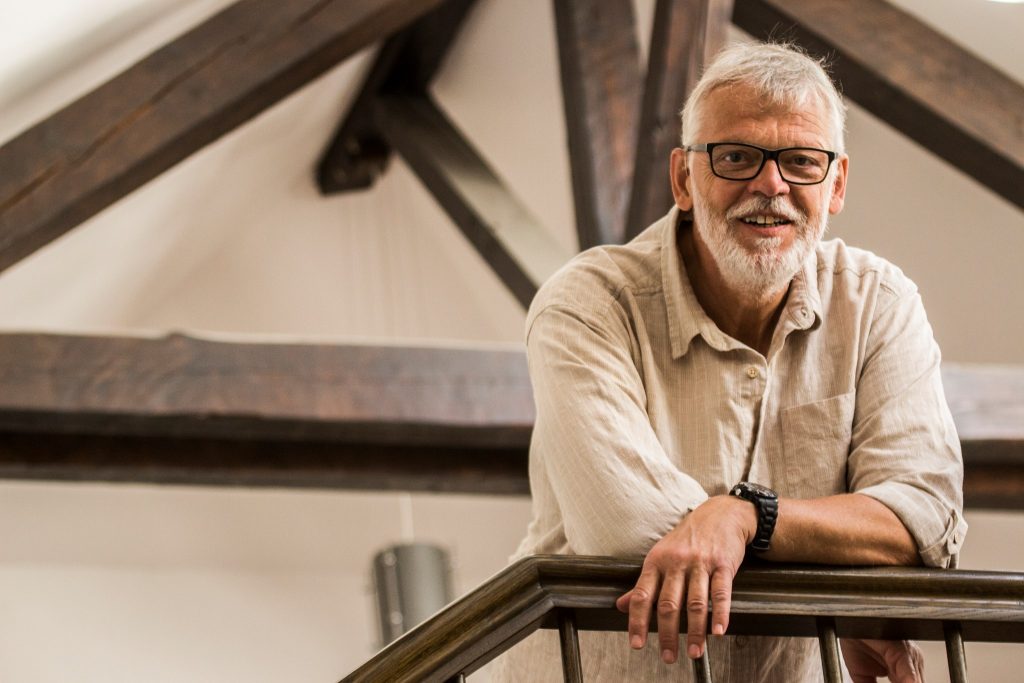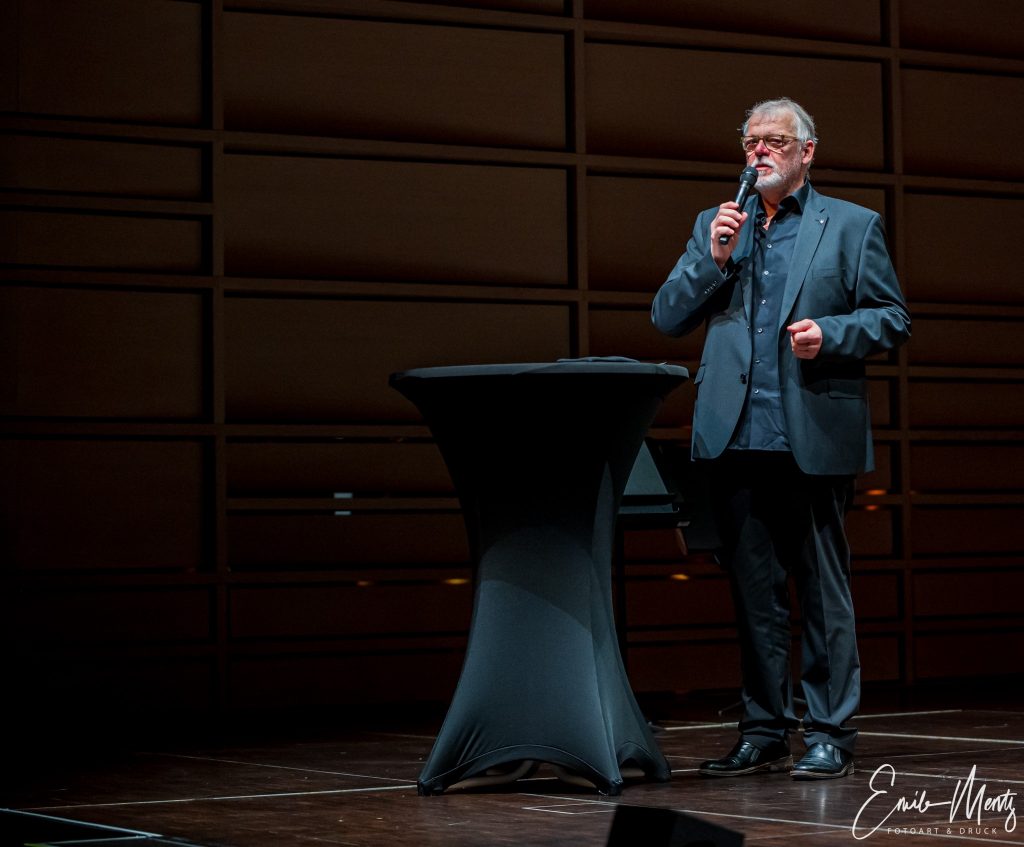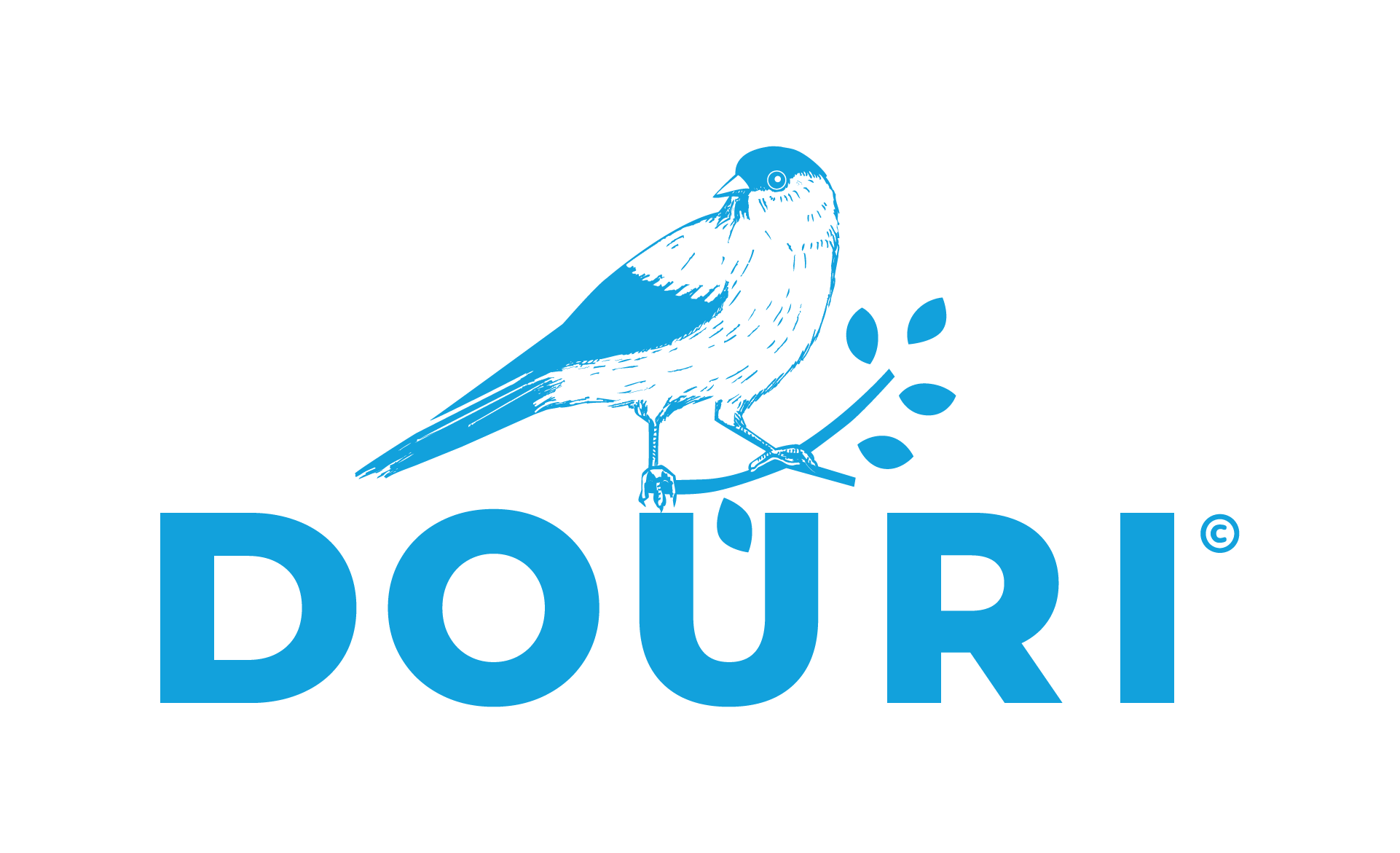“Music is the engine and the cure for everything” – Camille Kerger
- Douri
- Post Page
- Interviews
- “Music is the engine and the cure for everything” – Camille Kerger
“Music is the engine and the cure for everything”
An interview with Camille Kerger

Prepared by: Douri’s Empowring Creative minds team
Edited by: Jang Kapgen
Camille Kerger‘s music does not belong to one specific school. He rather defines his craft through his experimental and collaborative approach. Kerger is a Luxembourgish composer, singer and musician who walks through life with open ears. He stays attentive to new sounds and musical insights, even when – or especially when – coming from unexpected corners. Community projects and artistic collaborations have been central to his artistic practice. As part of the Empowering Creative Minds project, Douri asbl invited Kerger for an interview to discuss his artistic approach, the role of collaboration in music, and the emotional power of sound.
Douri: If you look back, in what ways has your upbringing influenced your artistic direction?
Camille Kerger: My father wanted to be a musician, but this became impossible immediately after World War II. He wasn’t bitter about it, but provided us with the platform and the resources to choose music as a career for ourselves, if we wanted to. I have benefited from this. Through him, I learned about the foundations of the musical world. I wanted to be a musician and I owe it to him that I am now able to do so.
What key milestones have shaped your creative journey from this beginning until now?
Being human, encounters, listening to music from other cultures, literature, visual arts, theater, spirituality. Every day that involves an inspiring encounter is a milestone.
What role have collaboration and partnerships played in your artistic journey?
I can only compose alone. However, I increasingly love working with artists from other disciplines – with writers, theater people, visual artists, and so on. These are encounter projects which, next to artistic experiences, give me valuable inspiration.

“Through music, I can anchor myself spiritually, see, feel, and think broadly and more deeply.“
Camille Kerger
How does the local cultural or societal context influence what work you produce?
That’s an interesting question, one I’ve thought about a lot, and still have to. I decided to stay in Luxembourg many years ago, and I still believe it was the right decision. Over the past 40 years, I’ve been able to observe and respond to the social, cultural, societal, and artistic changes in Luxembourgish society. However, I believe that the influence on my artistic path does not come from local society, but rather from encounters with literature, music, and the visual arts.
What does it mean to you when your art resonates with or impacts others? Is this something you intentionally seek?
Regardless of what individuals claim, every artist wants to be successful. If you don’t want to be a vassal of the industry, that’s where it becomes difficult. I often wonder how much of my music this or that person has heard, but I’m almost certain it’s nothing or very little. However, I still have a fairly large “community” of listeners, and they come to my concerts time and time again. There are also several ensembles that regularly play my music. Most important is to reach the hearts of listeners.
Do you believe that art can express emotions and experiences that are hard to articulate in words?
Absolutely, and not at all. Literature can express a great deal, and visual art can convey emotions. However, it is music that provides direct access to the emotional world.
Has your approach to expressing painful or difficult experiences through your music changed over time?
A pain always remains a pain, and if it changes, it becomes more intense. My nervous system has not improved over the years, but rather weakened. Thus, fear and grief are very often part of my everyday life, becoming more dominant over time. However, that’s part of it, and I can partially overcome them through the process of writing.
And how does music – or writing – help you process such emotions?
Music is the engine and the cure for everything. Through it, I have overcome illness, death, and difficult experiences, and have remained positive about life despite the blows of fate. Even my music itself has sometimes put me in difficult situations, when it was flatly rejected or ignored.
How do you interpret the term “vulnerable artist”?
Artists choose this profession because they know – or at least they believe to know – that they are more vulnerable than their fellow human beings. Music has always had a healing effect on me; I felt great while making music; I could and can understand the world in that moment. Through music, I can anchor myself spiritually, see, feel, and think broadly and more deeply. However, that doesn’t work in everyday life, and outside music, the questions become bigger and the answers sparser.
“It is music that provides direct access to the emotional world.”
Camille Kerger

Have you found that challenging experiences have impacted your creative process or influenced your artistic path?
Actually, every project is a challenging experience if you approach it with the necessary care. Perhaps I would have become a simple performing musician if I hadn’t had the opportunity to meet outstanding musicians and people. Messiaen, Tippett, Stockhausen, Hubert, Abbado, and Shama — to name a few — have had a lasting influence on my understanding of music, art, the world, and humanity.
What are some challenges artists face when expressing personal or traumatic experiences through their work?
I write because it is both my means and my legitimacy for living. I have to write in order to live. Personal or traumatic situations, which have certainly existed, exist, and will continue to exist, play a role in composing, but they are not crucial for me. I simply have to write; it’s part of my emotional hygiene.
Do you incorporate practices like meditation or other reflective tools into your creative process?
Walking, meditating, thinking…
How do you see the role of institutions—such as theatres, publishers, galleries, or museums in shaping the landscape of art and creativity?
They are very important if they ensure their focus on national art. There are now regular commissions in all art forms, which was impossible years ago. Orchestras and ensembles regularly perform local literature. There are good initiatives in all artistic disciplines. However, there is almost too much being offered for too small an audience.
Do you think being part of institutions affects how artists view the value of their own work or their place in the field?
I can’t say, because I personally want to be very free. I have worked in many institutions and have been able to achieve a lot with colleagues, but that had little or no impact on my own work.
What impact might it have on an artist’s future, if they choose to engage with or step away from institutions?
Everyone has the choice to do what they want. However, the consequences are clear and not necessarily conducive to success. I have withdrawn from most institutions because I want to concentrate fully on my composition. That comes at a price. But you have to stand by your decision.
Are there specific workshops or resources you think should be highlighted to help others develop and refine techniques?
It would be great if they existed…
What are your artistic aspirations for the future?
I’m currently working on a commissioned piece and already have plans for next year. I hope to write another opera, with a good text and a good production.
Thank you Camille Kerger for this insightful interview!
Conducted as part of the Empowering Creative Minds project, this interview offers just a glimpse into Camille’s world. You can learn more by visiting his website: https://www.camillekerger.com/music
The Empowering Creative Minds project is funded by the EU Creative Europe Programme, supporting cross-cultural collaboration and artistic growth across Europe.


